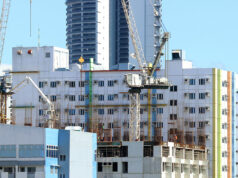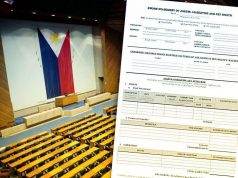PHL urged to push stronger defense deal during talks with EU

By Adrian H. Halili, Reporter
THE PHILIPPINE government should use the upcoming visit of the European Union’s (EU) top diplomat to push for an official security agreement between the country and the EU, analysts said.
“Aside from the joint patrols that are being undertaken alongside our troops by some EU member states, we may also explore possibilities of forging a security agreement with the EU,” said Josue Raphael J. Cortez, a diplomacy lecturer at the De La Salle-College of St. Benilde in a Messenger chat.
He added that given that EU member states are among our primary allies in this regard, then an agreement would be a viable strategy to pursue better and stronger security arrangements to maintain rules-based order and freedom of navigation.
“We must maximize this opportunity to discuss on how it can play a more integral role in aiding us in light of the challenges we face today over the disputed territories,” he added.
“With the EU, also yearning to become a security actor in the region, this visit will certainly be beneficial for both parties to discuss what they can do more collectively.”
EU High Representative for Foreign Affairs and Security Policy and Vice President (HRVP) Kaja Kallas will conduct an official visit to Manila from June 1-2, according to the Department of Foreign Affairs.
Ms. Kallas will meet with Foreign Affairs Secretary Enrique A. Manalo and other government officials to discuss ways to improve ties between the Philippines and the EU amid regional and global challenges.
High-level visits like this reaffirm a strong relationship and shared interest between the Philippines and the EU, Francis M. Esteban, associate dean at the Far Eastern University’s Institute of Arts and Sciences, said.
“This is a telling sign that we are really going through a multipolar world where traditional powers no longer dictate economic and security relations. We can expect more from this relationship,” Mr. Esteban said via Messenger chat.
Chester B. Cabalza, founding president of Manila-based International Development and Security Cooperation, said the meeting will cement both their stances in maintaining rules-based order on defense and security, tariff and trade, the environment, and educational and cultural exchanges.
“There should be structures [and] mechanisms through treaty or memoranda to legitimize the partnership to halt Chinese aggression in the international waters in defending freedom of navigation and overflight,” he added.
Tensions in the South China Sea have heightened as Beijing, through its coast guard ships, asserts its claim over areas that fall within the Philippines’ exclusive economic zone.
China claims more than 80% of the South China Sea based on a 1940s map, which a United Nations-backed arbitration court in The Hague voided in 2016 for being illegal.
TARIFFS AND LABOR
Apart from defense, Mr. Cortez said the meeting between the EU and Philippine officials should also focus on possible areas to safeguard their respective economies from the negative repercussions of the Trump administration’s reciprocal tariffs.
“Both the Philippines and its neighbors, and the EU are challenged by the repercussions of the reciprocal tariffs imposed by President Trump to their respective economies, this is also a time for us to manifest our intent as an alternative market for goods and service,” he added.
The Philippines was slapped with a 17% tariff reciprocal tariff from the US, the second lowest among Southeast Asian countries. The implementation was paused until next month.
“We must maximize this opportunity to leverage the country as an alternative market for EU products and services,” he said.
The Philippines and the EU are currently negotiating a potential free-trade agreement which could boost trade and economic bilateral ties.
Mr. Cabalza said that Philippine officials can also secure the labor rights of Filipino seafarers working in the EU.
“While many big European shipping industries employ Filipino ship captains and laborious blue collars seamen, EU can secure their labor rights and protection as the Philippines is seen as one of the powerhouses in shipping industry in the world,” he added.
He said that the EU can also support the migration policy of overseas Filipino workers to “ease the plight of many Filipinos in Europe seeking for golden visas in many of the countries in the EU.”
There are an estimated 900,00 Filipinos working and residing within the member countries of the EU.



